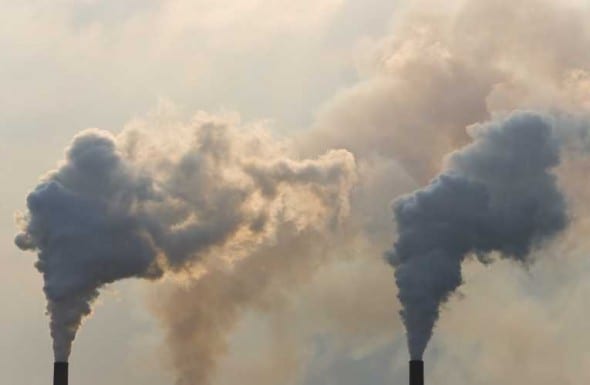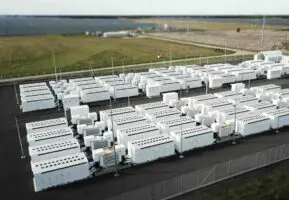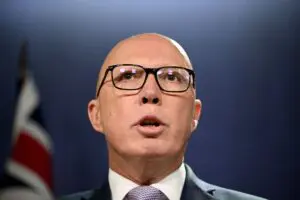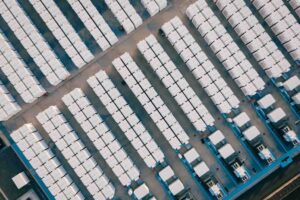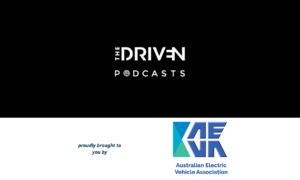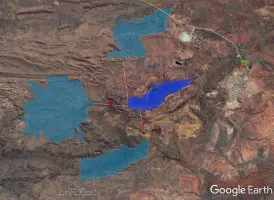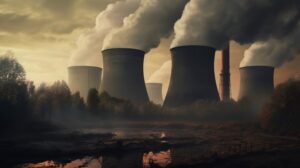The Australian Senate is to begin an inquiry into carbon risk disclosure in Australia, following a proposal by the Greens after the ground-breaking Paris climate agreement reached late last year.
The inquiry is due to report in June and will study carbon risk disclosure practices among Australian companies, regulatory oversight, international practise, and Australia’s involvement in the G20 Financial Stability Board discussions on carbon risk impacts.
“The Paris Agreement finalised in December 2015 has fundamentally changed the investment landscape,” said Emma Herd, the head of The Investor Group on Climate Change (IGCC), which represents most major investment houses and superannuation funds.
“When 195 nations agreed to a goal of limiting global warming to 2°C moving towards 1.5°C, it immediately became clear that all companies will need to stress test their commercial strategy for a two degree scenario and disclose to the market the risks and opportunities for their business.”
The inquiry will focus on corporate disclosure, although given the decisions at state and federal level in recent weeks, it might also want to focus on the carbon risk for the Australian economy as a whole.
New data this week revealed that Australia was increasing its emissions at a faster rate than any other developed economy, and was not likely to peak its emissions before 2030. The lack of new funding for Direct Action means that there is now no policy in place to reduce emissions. Investment in renewables remains at a standstill.
Meanwhile, the Queensland state government has given environmental approval for the giant Carmichael coal project in the Galilee Basin, although that $16 billion project will not go ahead unless it gets financing from private banks.
The Coalition, despite its apparent embrace of the Paris climate agreement, voted against the inquiry, with Liberal Party Senator Scott Ryan saying “the government does not support additional red tape.” The motion was passed with support of Labor and some cross-benchers.
The vote came as the Parliamentary Budget Office confirmed that the Coalition still intended to dismantle the Australian Renewable Energy Agency, booking savings of $1.2 billion if it can get it passed the Senate. Legislation to that effect has been prepared, but not yet tabled anew.
“The reality is the change in Liberal leader to Malcolm Turnbull hasn’t changed the Liberals’ anti-renewables agenda,” Labor climate spokesman Mark Butler said in a statement.
The establishment of the Senate inquiry was also welcomed by the Climate Institute, which noted that Australia has one of the most emissions-intensive economies in the world.
“We are also more exposed to the effects of climate change than any other developed country,” Climate Institute chief executive John Connor said
“Many investors are realising that the world has changed and that the drive to get to net zero carbon emissions will bring opportunities and risks. However others are still unaware of how the shift to a climate-safe economy will challenge many of the old assumptions behind financial and investment policy.
Herd also noted that the Australian economy was heavily exposed to the regulatory, physical and market risks of climate change.
“The time is right for a stocktake of current practice to better understand how Australia is managing carbon risk across the financial system and where the economic impacts sit,” she said.
“Many countries have begun introducing mandatory carbon risk reporting for business. More and more companies are voluntarily reporting on the carbon impacts across their operations through a variety of mechanisms.
“Institutional investors are actively engaging with companies to better understand how climate change will impact their returns”.
One of the key events at the Paris climate conference was the establishment of Task Force on Climate-related Financial Disclosure (TCFD) established by Bank of England Governor Mark Carney and chaired by Michael Bloomberg. Australia’s Reserve Bank is among its members.
Carney last year warned that investors face “potentially huge” losses from climate change action that could make vast reserves of oil, coal and gas “literally unburnable”.
Carney has focused on the “carbon budget” – a concept promoted by Australia’s Climate Change Authority, Carbon Tracker and others, but ignored by the Coalition government and most in the fossil fuel industry. It suggests that only one fifth to one third of the world’s proven reserves of oil, gas and coal could be safely exploited.
“If that estimate is even approximately correct it would render the vast majority of reserves ‘stranded’ — oil, gas and coal that will be literally unburnable without expensive carbon capture technology, which itself alters fossil fuel economics,” Carney said.
Carney said in Paris that he wants a market structure that will bring about “an ordered transition” to a zero-carbon economy. He pointed out that the 185 national climate targets tabled for Paris contain real information about where governments and the world are headed.
He said that it is legitimate for investors to ask companies “what’s your strategy for net zero (emissions)?”
Australian Greens Deputy Leader and Climate Change Spokesperson Senator Larissa Waters said Australians need to know where their money is invested.”
“Companies make it hard work to find out whether your superannuation and savings are helping to address global warming, or are actually making the problem worse.
“If the money from Australian banks and Australian superannuation funds keep flowing into fossil fuels, we will keep exacerbating global warming and blow our cash on what will certainly become stranded assets.”
Waters said she was particularly looking forward to questioning the Future Fund about what processes it is putting in place to protect the nation’s savings from the risk of the carbon bubble.
Whish-Wilson said France has established mandatory disclosure for investment banks and various share markets around the world are moving to mandatory disclosure likewise. “This inquiry is a critical stocktake of where we are at and where we need to head.”

